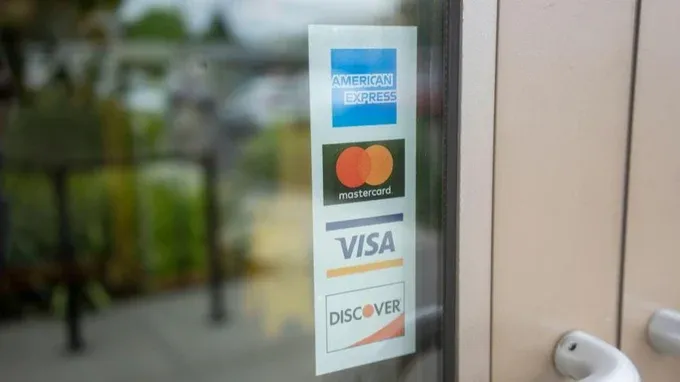What Makes American Express Different From Visa and Mastercard?
Updated: 11 Apr 2025
Ever wondered why your Amex feels different from your Visa or Mastercard? It's not just a feeling—it's a fundamentally different system.
Written bySingSaver Team
Team

The information on this page is for educational and informational purposes only and should not be considered financial or investment advice. While we review and compare financial products to help you find the best options, we do not provide personalised recommendations or investment advisory services. Always do your own research or consult a licensed financial professional before making any financial decisions.
✨Get the Reward Upgrade You Deserve✨
Get your dream Apple, Dyson, Sony, or Nintendo gadgets when you apply for select Citi, HSBC, OCBC, or Standard Chartered credit cards via SingSaver and top up as low as S$60! Valid till 1 March 2026. T&Cs apply.
When it comes to credit cards in Singapore, the difference between American Express (Amex) vs Visa vs Mastercard is a common point of confusion. While Visa and Mastercard are giants in the credit card world, they operate differently than Amex.
You can think of Visa and Mastercard as the roads on which credit card transactions travel. They facilitate the process but don't actually build the roads or issue the cars. A bank like DBS, OCBC, or UOB actually issues your Visa or Mastercard. Your relationship is with that bank, not Visa or Mastercard. The bank handles your statements, requests for payments, issues rewards, and does everything else related to your credit card, while Visa or Mastercard processes your transactions.
Amex, on the other hand, is both the road and the car. In Singapore, the American Express Bank is a commercial bank that is a wholly-owned subsidiary of the American Express Company. You can have a direct account with Amex and they’ll issue your credit card and process your transactions.
For most everyday users, this difference between Visa Mastercard and Amex is subtle. However, behind the scenes, this difference greatly impacts how transactions are processed and how fees are distributed.
So, how is American Express different from Visa and Mastercard? Essentially, by controlling both card issuance and transaction processing, Amex captures a larger share of the revenue generated from transaction fees.
>> MORE: All You Need to Know About Credit Card Basics in Singapore
Parties involved when you make a transaction
When you swipe your credit card to make a purchase, a complex dance of financial interactions begins. Here’s an overview of the process and the parties involved:
-
You, the cardholder, start the process when you make your purchase.
-
The issuer (your bank, which provided you with the card) manages the transaction.
-
The merchant (the business you're paying) uses a relationship with their bank (an acquirer) to accept card payments.
-
The payment network — Visa, Mastercard, or American Express — acts as the intermediary, verifying the transaction and ensuring funds transfer.
With this process, you can already imagine why a merchant cannot realistically establish individual relationships with every single bank. The sheer number of banks in Singapore alone is substantial, and the complexity increases exponentially when considering international cardholders and their respective banks.
Therefore, merchants partner with the major payment networks. For example, a contract with Visa, for instance, allows a merchant to accept all Visa cards, regardless of the issuing bank. This streamlined system simplifies payment processing for businesses, allowing them to accept a wide range of cards while ensuring a consistent and secure transaction experience for all cardholders.
>> MORE: Credit Cards 101
Who pays the fees?
It’s no surprise that this entire system runs on fees that are charged for each credit card transaction. Merchants pay these fees for each transaction, and these costs are typically passed on to consumers through the pricing of their goods and services. What’s gained from these fees is then divvied up between the issuer, the merchant's bank, and the payment network.
Here's where the distinction between American Express vs Visa vs Mastercard becomes important again. Visa and Mastercard are only payment networks, and their cards are issued by banks. American Express is both a payment network and an issuer.
This dual role means that Amex can streamline the process, potentially lowering its own costs while collecting more fees. While establishing and maintaining its own network is a significant investment for Amex, the increased revenue from fees can offset these costs.
So, is Amex different from Visa and Mastercard? Yes. Although, as the cardholder, you’ll likely experience little to no difference in day-to-day use, the underlying structure is quite distinct. This difference impacts not only the process and management of transactions but also the flow of fees and revenue within the credit card ecosystem.
>> MORE: Amex, Visa, or Mastercard: Which is Best for Travel?
Unlock the perfect card for your lifestyle and financial goals.
Looking to optimise your finances? Whether your priority is saving on interest charges or maximising rewards, we can help you find the ideal credit card.
Relevant articles
About the author
SingSaver Team
At SingSaver, we make personal finance accessible with easy to understand personal finance reads, tools and money hacks that simplify all of life’s financial decisions for you.

